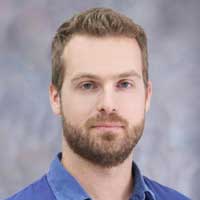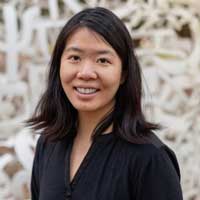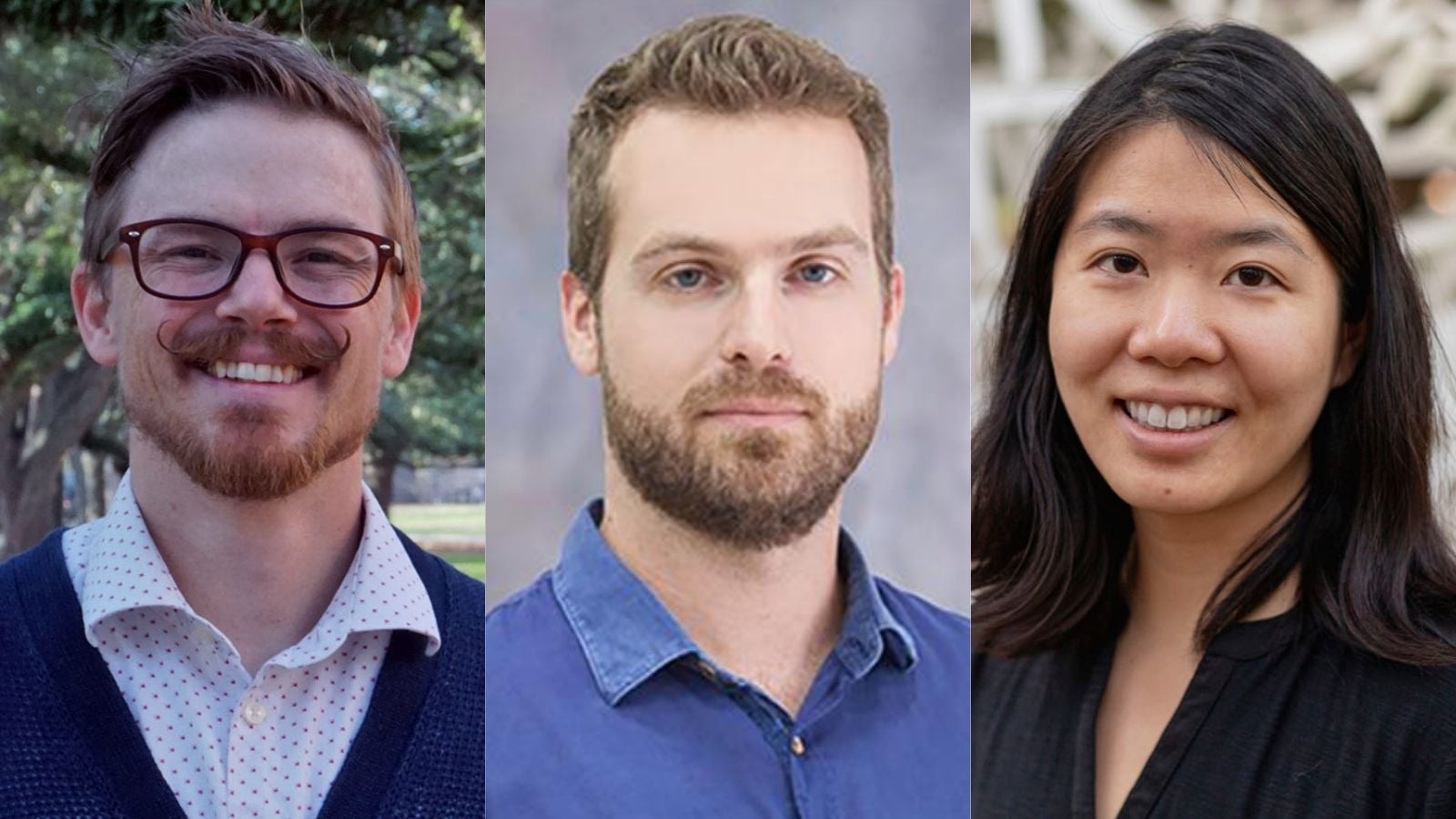Three young researchers in Rice University's Department of Computer Science are recipients of National Science Foundation CAREER Awards, among the most competitive and prestigious given by the federal agency.
The winners are Nathan Dautenhahn, assistant professor of computer science; Anastasios Kyrillidis, the Noah Harding Assistant Professor; and Vicky Yao, an assistant professor of computer science.
CAREER Awards are given annually to some 400 young scientists and engineers in support of “early career faculty who have the potential to serve as academic role models in research and education and to lead advances in the mission of their department or organization.”
Nathan Dautenhahn

Dautenhahn was awarded a five-year, $630,000 grant to fund his “Least-Authority Virtual Architecture” (LAVA) computer security strategy. He proposes sealing security gaps that would otherwise cost industry and the public billions of dollars. His proposal is titled “Automatically Taming System Complexity with the Least-Authority Virtual Architecture.”
“The challenge with baking security into products by default,” Dautenhahn said, “is that without users there’s no money to invest in security. This ends up forcing bad security practices in exchange for more functionality and users, because if people aren’t using your product, it doesn’t matter how secure it is. You end up having a scenario I call over-privilege, where users and software can access data or information they shouldn’t have.”
Dautenhahn proposes a kind of compartmentalization: “Each component within a computing system should only have access to the resources they need to do the job they’ve been given. We borrow this principle from the military. There it’s known as ‘need to know.’
“The big idea for the grant -- and why it’s a 20-year and not just a five-year project -- is to figure out if we can systematically retrofit least-authority security boundaries into existing products Since we are not going to change the economics of security, is it possible to retrofit security boundaries in to provide meaningful firewalling?”
Dautenhahn earned his Ph.D. in CS from the University of Illinois at Urbana-Champaign in 2018 and joined the Rice faculty that year.
Anastasios Kyrillidis

Kyrillidis, by further exploring the theory and design of non-convex optimization, hopes to devise a technology for faster, more robust algorithms with impacts in many fields. He has been awarded a five-year, $650,000 grant for his research proposal, “Algorithmic foundations for practical acceleration in computational sciences.”
“Given that we lack theory, more often than not, in non-convex optimization,” Kyrillidis said, “researchers often follow trial-and-error procedures, which leads to heuristics. Deciding when heuristics are provable algorithms is a pressing need for the scientific community and society as a whole.”
Kyrillidis’ goal is to devise algorithmic foundations and theory that will accelerate problem solving. This would include the design of fast algorithms as an active research area in machine learning, information processing and optimization research.
Understanding how performance is obtained using efficient algorithms is essential to designing practical and safely applicable learning, he said. His research will focus on three priorities: Faster convergence in structure-rich problems, with emphasis on matrix-factorized machine learning problems; algorithmic acceleration in non-convex scenarios, with a focus on neural network architectures; and acceleration techniques in machine-learning systems
Vicky Yao

With her five-year, $790,000 grant, Yao plans to develop machine learning methods and build open-source software to help biomedical researchers analyze DNA methylation, a biological process by which a methyl group is added to a cytosine, one of DNA’s four bases. Such small modifications affect gene expression and show region-specific patterns. Yet they’re dynamic, changing with age and in response to environmental factors such as air quality, diet and exercise.
This interests Yao, who wants to sift through the more than 28 million DNA methylation sites in the genome to find “fingerprints” representative of distinct tissues and cell types and how these translate into essential downstream functions.
“I’m grateful for the NSF award because this is somewhat of a new direction for me,” said Yao, who joined Rice in 2019 with backing from the Cancer Prevention and Research Institute of Texas and has co-authored high-profile papers applying machine learning methods to uncover once-hidden molecular processes responsible for arthritis and neurological disease.
Methylation occurs throughout the body, and gaining a better understanding of this fundamental biological process will help researchers who study development, aging and disease, she said.
“DNA methylation is a natural interface between the environment and what happens on the DNA level, and there can be many downstream effects,” Yao said. “You inherit your DNA from your parents -- your A, C, G and Ts -- and these are fixed aside from mutations which can cause disease. But methylation is a natural way to change or reverse things without adjusting the actual genome.
“It plays such a big role in regulation that it is often referred to as the ‘fifth base of DNA,’” she said. “Methylation clearly can change whether a gene is expressed or not, but it’s also relatively stable. This means we can use it as a biomarker to help orient where we are in the body and, interestingly, begin to pinpoint how environmental stimuli affect our cells.”

